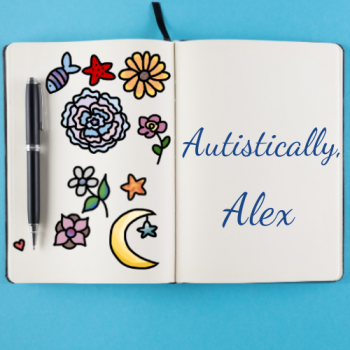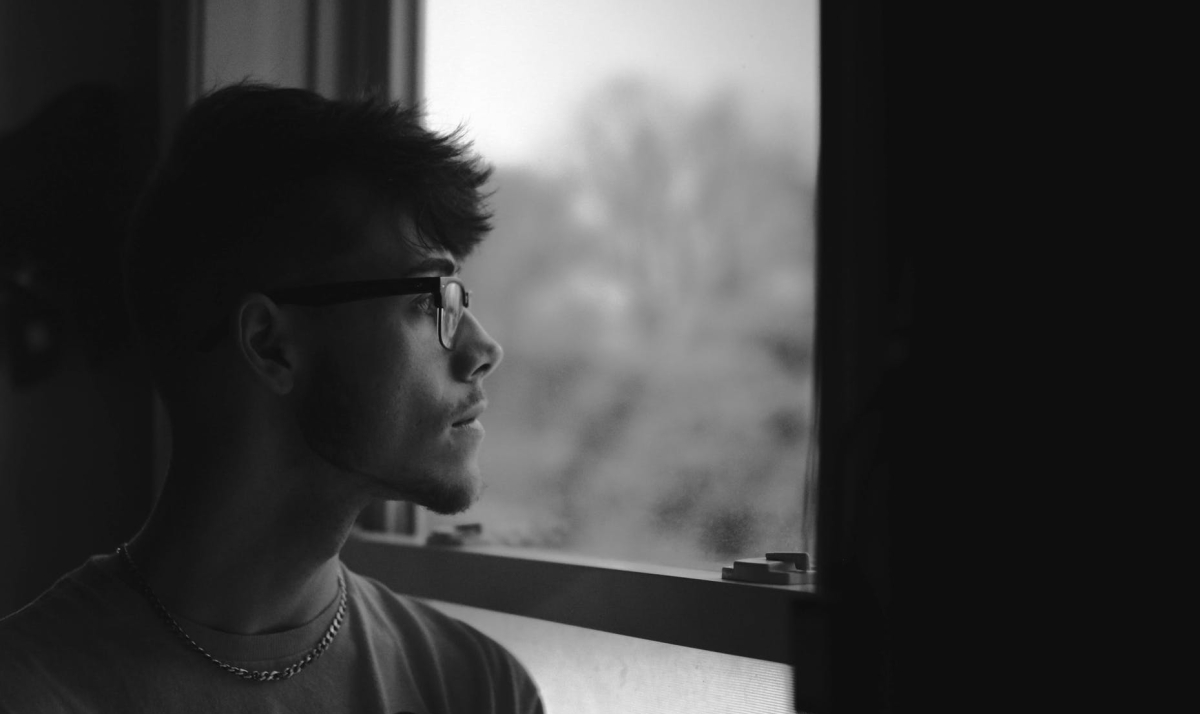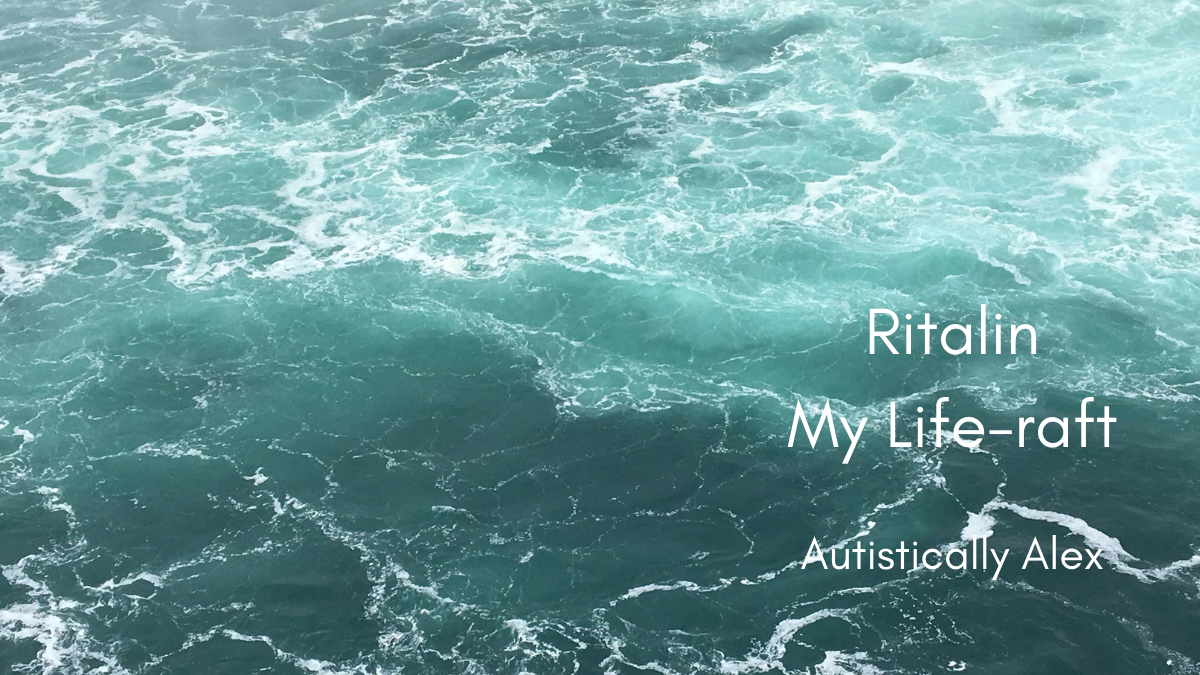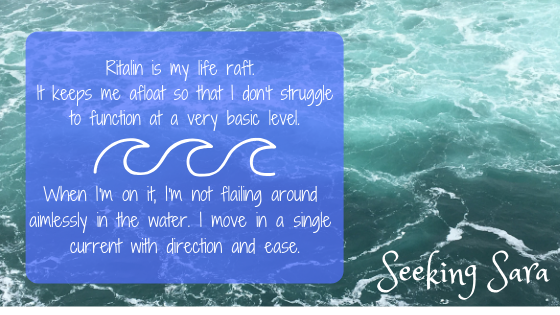I’m writing this post from self-quarantine, practicing social distancing. Luckily, I have no COVID-19 symptoms (so far). I am isolating myself to help slow the spread of this deadly virus, as well as protecting myself as I’m in the higher-risk category. I’ve had a lot on my mind during this first week of isolation and have been struggling with some pretty tremendous mental health concerns.
Despite all of this, I’ve also found some ways to find some calm and order. I want to share some of them with all of my readers—Autistic or not. As a multiply disabled, introverted Autistic, I have a unique perspectives to offer. I generally don’t leave my house much when I can help it; I have a lot of online friends; I’ve been bed- or couch-bound countless time in my life. Social distancing is kind of my default, even if it’s not always my choice.
While my thoughts aren’t going to help everyone, they may help someone. And that’s all I can hope for.
1) Keeping any routine possible; Adapting what has to change
This is something I practice anytime I cannot follow my normal routine in general. Keeping to a routine—even an adapted one—is key to my mental health. Because I also have ADHD, that can sometimes be tricky, but routine doesn’t have to look like a rigid frame. It can be bendy and flexible if that’s what works for you. A step in your routine can be as simple as “In the mornings I will do something relaxing before work.”
Even though I am working remotely now, I have been doing my best to get up and go to bed at the same times. I eat breakfast at the same time, and start work at the same time. That familiarity and rhythm brings comfort and certainty in a very uncertain time.
But what about things that have to be changed? For example, what if you usually visit your favorite coffee shop with a friend after work? In cases like that, I Skype that friend, brew some tea together and talk as usual. Usually go to the gym at night? Look up YouTube videos of workouts you can do at home, and work out during your usual time.
It’s not the same, but it’s familiar and that can bring calm. It’s taken several days of my “new normal” routine to feel natural, but now it brings me a lot of comfort when I’m anxious.
2) Putting locks on social media apps & limiting news
I often compulsively check social media during my downtime, partly because so many of my friendships are online, and partly because I find social media to be a nice distraction. But right now, that’s not the case. I find myself getting sucked into hyper-focusing on news, perseverating on local events, and worrying about friends and family (and everyone in general).
I ended up setting up Screen Time on my phone for all social media apps. That’s a setting on iPhones that can help you control your app habits; there are similar things for other phones. I gave myself a 30 minute cut off for social media. That means when I reach that 30 minutes, a notification will pop up and let me know. I then have the option to snooze that reminder for 15 more minutes of viewing time, turn it off for the day, or just close that app.
I’m finding that this helps with executive dysfunction and getting trapped in a loop, losing hours of time to stress and panic. It’s nice because it also doesn’t make me feel out of control. I am able to dismiss the reminder, and it will remind me again after 15 minutes when I can then decide again if I need a break or not. It holds me accountable, but also gives me the power of choice when my brain can’t necessarily regulate itself.
3) Dual tasking when I need distraction
I’ve found that if I try to sit down and do something to relax and distract myself from the current situation, I will end up either doing something else by accident or heavily dissociating. (Sometimes both because I’m an overachiever.) That’s not helpful, and actually really distressing!
In the last week I have turned to giving my brain dual tasks. For example, I will cross stitch while listening to the TV. I’ll listen to an audiobook while I play a simple game. Color and listen/sing to music. That’s been the key to me sticking with a distraction long enough to actually de-stress! I’ve finally been able to relax now with that strategy and it’s doing a world of good for my mental health.
4) Being gentle with myself regarding mental health
(Content warning: eating disorder, OCD, mental health spirals, etc.)
In the last few weeks, I’ve definitely noticed an uptick of mental health issues in myself. My eating disorders—even though I’ve been doing really well in treatment—tell me that if I eat too much we will run out of food. Then my wife will have to leave the house and of course she’ll get sick and she’ll die and then I’ll suffer and then I’ll die… Oof. The eating disorder is latching onto very real fears and just running with it.
I’ve also seen a huge relapse with obsessive compulsive issues. I had pretty severe OCD as a kid, but have recovered to the point that I have only really have mild OCD tendencies. In the last week in particular, I’ve really struggled. For example, one night I got “stuck” in the shower for 30 minutes, washing my whole body several times, then standing there as my brain told me I still have the virus on me and if I get out now I will murder everyone I know and love. I couldn’t seem to make my body move. So I thought maybe should call to my wife to come help me, but my brain said if I did, maybe she would trip on the way up the stairs and hit her head! (OCD is a real piece of crap.)
My agoraphobia—which I always struggle with to a certain extent—is absolutely and positively thrilled to have a logical reason to not leave the house. So I struggle to even go on short walks. And I won’t even start on anxiety because… it makes me anxious. Hah!
So yes, it’s been really rough. But ultimately, I have realized that I gain nothing by being critical of myself. This situation is hard. It’s scary. It’s really horrifying. And my brain is actually doing it’s best right now. Strange as it sounds, it’s trying to protect me and it’s just sort of… glitching. It’s similar to the concept that I talked about regarding my chronic illnesses in 28: Chronic Illness: Am I “Broken”?. My body and mind are compromised. And they’re doing the best they can right now. What I can do is be gentle and give myself time to rest and recharge.
5) Positive output
The last thing that’s been incredibly helpful for me is making something positive. My wife and I made a cover video of the song “Tomorrow” from Annie to share with our loved ones. It started as us unwinding at lunchtime and evolved into my wife writing a piano arrangement. We made the video because we needed it ourselves. We feel so helpless and powerless. We did it to uplift our family and community, but we also just needed to do… something, anything! Something to put a bit of happiness and hope out into what is an extra dark and scary world right now.
Putting something out into the world doesn’t have to be extravagant. It can be sending an email to a friend, making a piece of art, sending a gift to a neighbor, or donating money to someone in need… something to remind yourself and others that the sun will shine again.





